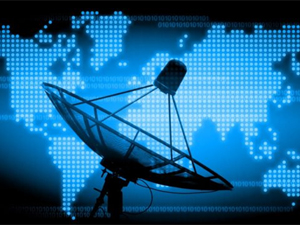



Date:21/06/18
 A sophisticated hacking campaign launched from computers in China burrowed deeply into satellite operators, defense contractors and telecommunications companies in the United States and southeast Asia, security researchers at Symantec Corp said on Tuesday.
A sophisticated hacking campaign launched from computers in China burrowed deeply into satellite operators, defense contractors and telecommunications companies in the United States and southeast Asia, security researchers at Symantec Corp said on Tuesday.
Symantec said the effort appeared to be driven by national espionage goals, such as the interception of military and civilian communications.
Such interception capabilities are rare but not unheard of, and the researchers could not say what communications, if any, were taken. More disturbingly in this case, the hackers infected computers that controlled the satellites, so that they could have changed the positions of the orbiting devices and disrupted data traffic, Symantec said.
“Disruption to satellites could leave civilian as well as military installations subject to huge [real world] disruptions,” said Vikram Thakur, technical director at Symantec. “We are extremely dependent on their functionality.”
Satellites are critical to phone and some internet links as well as mapping and positioning data.
Symantec, based in Mountain View, California, described its findings to Reuters exclusively ahead of a planned public release. It said the hackers had been removed from infected systems.
Symantec said it has already shared technical information about the hack with the U.S. Federal Bureau of Investigation and Department of Homeland Security, along with public defense agencies in Asia and other security companies.
Thakur said Symantec detected the misuse of common software tools at client sites in January, leading to the campaign’s discovery at unnamed targets. He attributed the effort to a group that Symantec calls Thrip, which may be called different names by other companies.
Thrip was active from 2013 on and then vanished from the radar for about a year until the last campaign started a year ago. In that period, it developed new tools and began using more widely available administrative and criminal programs, Thakur said.
Symantec provides the most widely used paid security software for consumers and an array of higher-end software and services for companies and public agencies.
Hackers in China infected computers that control satellites in the US and Asia
 A sophisticated hacking campaign launched from computers in China burrowed deeply into satellite operators, defense contractors and telecommunications companies in the United States and southeast Asia, security researchers at Symantec Corp said on Tuesday.
A sophisticated hacking campaign launched from computers in China burrowed deeply into satellite operators, defense contractors and telecommunications companies in the United States and southeast Asia, security researchers at Symantec Corp said on Tuesday.Symantec said the effort appeared to be driven by national espionage goals, such as the interception of military and civilian communications.
Such interception capabilities are rare but not unheard of, and the researchers could not say what communications, if any, were taken. More disturbingly in this case, the hackers infected computers that controlled the satellites, so that they could have changed the positions of the orbiting devices and disrupted data traffic, Symantec said.
“Disruption to satellites could leave civilian as well as military installations subject to huge [real world] disruptions,” said Vikram Thakur, technical director at Symantec. “We are extremely dependent on their functionality.”
Satellites are critical to phone and some internet links as well as mapping and positioning data.
Symantec, based in Mountain View, California, described its findings to Reuters exclusively ahead of a planned public release. It said the hackers had been removed from infected systems.
Symantec said it has already shared technical information about the hack with the U.S. Federal Bureau of Investigation and Department of Homeland Security, along with public defense agencies in Asia and other security companies.
Thakur said Symantec detected the misuse of common software tools at client sites in January, leading to the campaign’s discovery at unnamed targets. He attributed the effort to a group that Symantec calls Thrip, which may be called different names by other companies.
Thrip was active from 2013 on and then vanished from the radar for about a year until the last campaign started a year ago. In that period, it developed new tools and began using more widely available administrative and criminal programs, Thakur said.
Symantec provides the most widely used paid security software for consumers and an array of higher-end software and services for companies and public agencies.
Views: 475
©ictnews.az. All rights reserved.Similar news
- Cellphone Use May Raise Cancer Risk
- Australian police pushes cyber safety education
- Vietnam aims to lead in e-government
- Senate Website Gets Hacked
- US builds net for cyber war games
- Japan enacts anti-computer virus law
- India passes law vs e-waste
- Anonymous Declares War On The City Of Orlando
- Microsoft highlights evolving dangers as online identity data proliferates
- Consumers want internet security to be provided by banks
- Government facilities targets of cyber attack
- South Korean web attacks might been war drill
- Sri Lanka to Establish National Passport Database to Increase Border Security
- Hi-tech crime agencies set to employ information security professionals
- Phone hacking and online campaign bring down the News of the World





















